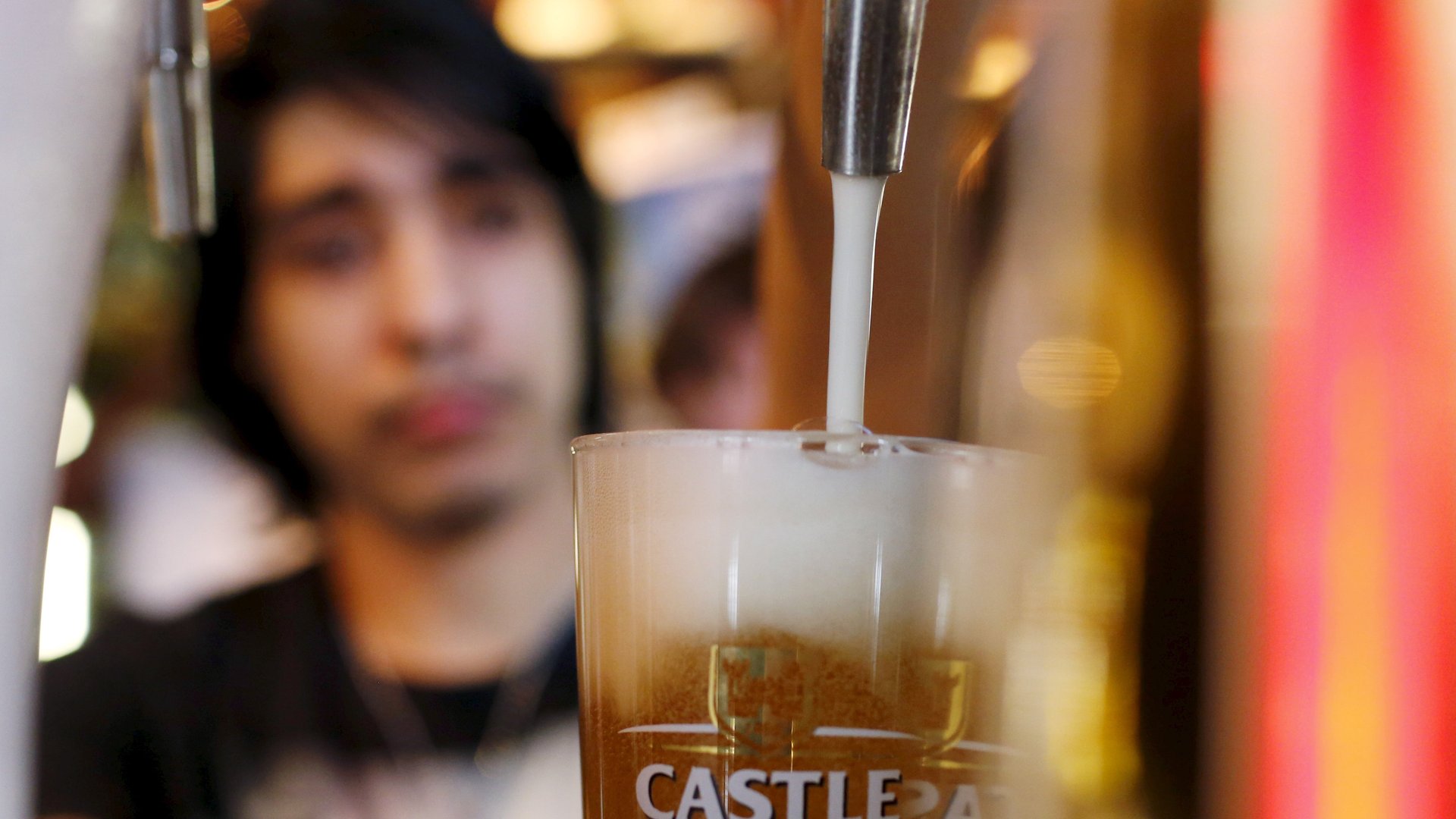South Africa is worried the SABMiller takeover by Anheuser Busch will hurt its tax base
Executives at Anheuser Busch InBev, the world’s largest brewer, may be pleased with themselves for convincing SABMiller to agree—in principle—to the $106 billion takeover proposition. But back in South Africa, the birthplace of SABMiller, national treasury officials are worried about the implications of the takeover in tax revenue terms.


Executives at Anheuser Busch InBev, the world’s largest brewer, may be pleased with themselves for convincing SABMiller to agree—in principle—to the $106 billion takeover proposition. But back in South Africa, the birthplace of SABMiller, national treasury officials are worried about the implications of the takeover in tax revenue terms.
South Africa’s national treasury director, Lungisa Fuzile, told Reuters the country’s treasury department would “in the extreme” attempt to block the takeover application, should there be any concerns about the possibility of tax base erosion.
“We subject those applications to objective criteria–the likely impact on capital account, the impact on the tax base and the possible complications,”said Fuzile to Reuters, referring to the SABMiller takover.
Should AB InBev’s takeover of SABMiller go ahead, the mega brewing company will be responsible for 29% of beer produced globally, according to Euromonitor. This would make it the producer of 1 out of every 3 beers consumed globally.
The company, initially founded in South Africa as South African Breweries (SAB) in 1895, contributes significantly towards the country’s tax revenue. SAB, a South African subsidiary of SABMiller, employs over 9,400 people in the country and has 40 depots with a brewing capacity of 3.1 billion litres annually, according to its website page.
Just last year, SABMiller paid $1.517 billion or R20 billion to South Africa in taxes—making South Africa the country where the brewer pays the most taxes in Africa, due to the scale of the brewer’s operations in the country.
Not only is it South Africa the African country where the brewer pays the most taxes, it also ranks among the top 5 countries across the world where SABMiller pays the most taxes.
With rising social needs, South Africa has every need to keep an eye on tax contributions from a large multinational like SABMiller.
Exchange concerns
Another issue South African regulators are likely to clamor on is whether or not the new owners of SABMiller will keep the secondary listing of the brewer on the Johannesburg Stock Exchange (JSE). South African Breweries, the forerunner to SABMiller, was the first company to list as an industrial share on the JSE in 1897—just two years after it was founded
Gary Booysen, an analyst with Rand Swiss, argues that the listing on the South African stock exchange is important for heritage reasons as it is for the market too.
“SABMiller is one of the most highly valued listed companies on the JSE, it makes up 10% of the JSE’s Top 40 index. While ABInBev has indicated that they would consider keeping the secondary listing on the JSE, it’s still early days. The final proposal for deal, due on Oct. 28, will shed some light on this,” said Booysen.